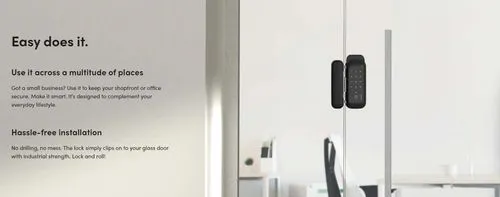What is an approved lock and why do you need one?

Home security is a top priority for homeowners, and one of the most effective ways to protect your home and loved ones is by using approved locks. (But what exactly are approved locks?) They're locks that have been tested and certified by a recognized testing agency to meet certain security and durability standards. These locks are typically used in commercial and residential settings to provide added security and protection.
(Now here's the thing) One of the main benefits of using approved locks is that they offer a higher level of security compared to standard locks. Approved locks are designed to resist picking, drilling, and other forms of forced entry, making it much harder for intruders to gain access to your home. They also often feature stronger and more durable materials, such as hardened steel or solid brass, which can withstand heavy use and resist wear and tear. But that's not all, many insurance companies offer discounts on home insurance policies for homes with approved locks, as they are considered to be a lower risk. Additionally, many local and state building codes require the use of approved locks in certain areas or types of buildings, such as apartments or commercial properties.
(Now, hold on) When it comes to choosing approved locks for your home, there are a few things to consider. First, you'll want to think about the specific areas of your home that you want to secure, such as doors, windows, or safes. You'll also want to consider the level of security you need for each area, as there are different types of approved locks available for different security needs. For example, a deadbolt lock is a good choice for securing a front or back door, as it provides a high level of security and is resistant to forced entry. A sliding glass door lock, on the other hand, is designed specifically to secure sliding glass doors and may not be as secure as a deadbolt.
Another important factor to consider is the type of keyway. There are several types of keyways available for approved locks, including traditional cylinders, interchangeable cores, and high-security. Each type has its own set of advantages and disadvantages, so it is important to choose the keyway that best suits your needs. And don't forget about electronic locks, which are becoming increasingly popular in residential settings. These locks use a code or a smart device to open and secure the door and offer the added convenience of keyless entry. However, they are generally more expensive than traditional locks and may require additional installation or maintenance.
In conclusion, approved locks are an important aspect of home security, and can provide added protection and peace of mind for homeowners. By choosing the right type of lock for your specific needs and considering factors such as security level and keyway, you can ensure that your home is properly secured and protected. With the right approved lock, you can feel safe and secure in your home, knowing that you and your loved ones are protected against intruders!
Few examples of approved locks in the UK are:
- BS 3621:2007 is a British Standard for locks used on external doors. It is a requirement for many insurance companies, and is often specified by local authorities and housing associations.
- TS007 is a standard for the enhanced security of multi-point locking systems. It was developed by the Door and Hardware Federation (DHF) and is recognized by the Association of British Insurers (ABI)
- PAS 24:2016 is a standard for the enhanced security performance requirements for door assemblies. It is recognized by the Police and the insurance industry.
These locks are typically used in commercial and residential settings to provide added security and protection. They are commonly used on doors, windows, safes, and other types of closures to prevent unauthorized access or entry. The need for an approved lock depends on the level of security required for a particular setting or application. In general, approved locks offer a higher level of security compared to standard locks, and are often required by building codes, insurance policies, or government regulations.
